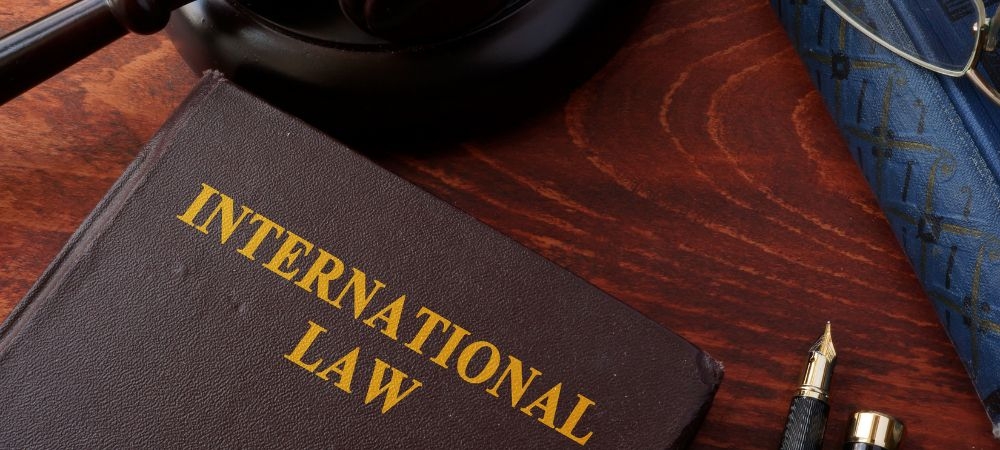

Refugee law, as we know it today, has a fascinating and complex history. check . It's not something that just appeared overnight. Get the inside story view here. Rather, it developed over decades, shaped by pivotal events and key milestones. The historical development of refugee protection is a tale of human rights advocacy interwoven with political realities.
One cannot talk about refugee law without mentioning the aftermath of World War II. The war left millions displaced, homeless and vulnerable. In response to this crisis, the United Nations was established in 1945. The UN ain't just a peacekeeper; it's also got a big role in humanitarian aid. In 1951, the UN General Assembly adopted the Convention Relating to the Status of Refugees often referred to simply as the 1951 Refugee Convention.
The 1951 Refugee Convention was groundbreaking because it provided a clear definition of who qualifies as a refugee: someone who "owing to well-founded fear of being persecuted for reasons of race, religion, nationality, membership of a particular social group or political opinion" is outside his or her country and is unable or unwilling to return. This convention set out basic rights for refugees like access to courts and education but didn't cover everything.
Some folks might think that the story ends there but oh no! Fast forward to 1967 another critical year for refugee protection when the Protocol Relating to the Status of Refugees was introduced. This protocol removed geographical and temporal limitations from the 1951 Convention allowing more people around world benefit from its protections.
But let's not kid ourselves; these legal frameworks are only part of story. Implementation has been patchy at best with countries interpreting their obligations differently based on their own interests. Sometimes ya gotta wonder if they even read those documents!
Another milestone worth noting is establishment Office United Nations High Commissioner for Refugees (UNHCR) in 1950 initially given three-year mandate help resettle Europeans displaced by WWII now global agency protecting millions worldwide showing how scope expanded time proving that initial mandates dont always stick rigidly within confines first imagined them.
Oh! Lest I forget regional agreements have also played crucial roles in shaping refugee laws tailored specific contexts such Africas OAU Convention governing aspects peculiar continent providing broader definitions inclusive internally displaced persons recognizing unique challenges posed internal conflicts
Arguably one most recent significant developments Global Compact on Refugees adopted UN General Assembly December 2018 aimed addressing root causes displacement enhancing mechanisms burden-sharing among nations emphasizing need international solidarity cooperation rather than unilateral actions
In conclusion while progress undeniable glaring gaps remain implementation enforcement creating disparities between theory practice true realization fundamental human right seek asylum live dignity safety still distant dream many however journey continues marked determination incremental victories paving way better future generations forced flee homes
When it comes to Refugee Law, understanding the core principles and definitions underpinning refugee status is absolutely crucial. Without these foundational elements, wed be lost in a maze of legal jargon and bureaucratic red tape. Lets dive into what really matters here.
First off, the definition of a "refugee" isn't something that's just pulled outta thin air. It's actually defined under international law, specifically by the 1951 Convention Relating to the Status of Refugees and its 1967 Protocol. According to this convention, a refugee is someone who has fled their country due to well-founded fear of persecution on account of race, religion, nationality, membership in a particular social group or political opinion. So yeah, it's not just anyone who wants to move for better job prospects or nicer weather.
But hey, dont think that means every person facing some sort of hardship will qualify as a refugee. Nope! Economic migrants are different from refugees because they're primarily moving for economic opportunities rather than escaping persecution. It might sound harsh but there's a clear distinction there.
Now lets talk about non-refoulement - kinda sounds like a fancy French dish doesn't it? But no! Its actually one of the core principles in Refugee Law which states that refugees shouldnt be returned to countries where they face serious threats to their life or freedom. This principle ensures that people fleeing danger arent sent back into harm's way pretty humane if you ask me!
However, it's not all sunshine and rainbows when it comes to implementing these principles worldwide. Countries have varying interpretations and sometimes even use loopholes (yep, those exist in international law too) to avoid granting asylum or adhering strictly to non-refoulement obligations.
Then there's the issue of durable solutions resettlement in another country being one option among others like voluntary repatriation or local integration within host communities. Each solution has its own set of challenges; none are perfect but they aim at providing long-term stability for refugees.
We also cannot ignore how regional instruments play roles similar yet distinct from global conventions - take Africa's OAU Convention Governing Specific Aspects Of Refugee Problems In Africa which broadens criteria beyond those specified by UNHCR guidelines; similarly Cartagena Declaration addresses Latin American contexts uniquely tailored based on experiences faced regionally there!
Lastly let's touch upon internally displaced persons (IDPs). These folks havent crossed any borders so technically aint classified as 'refugees', though they might be facing comparable situations internally within their own nations without crossing international lines making them equally vulnerable needing protection mechanisms albeit under different frameworks generally governed through humanitarian aid channels supplemented often via collaborative efforts between national governments & NGOs alike addressing needs specificities therein involved accordingly reflecting situational dynamics evolving contextually over timeframes observed periodically assessed ongoing basis ensuring appropriate interventions timely manner feasible practical terms achievable realistically speaking overall perspective considered comprehensively holistic approach adopted preferably ideally suited best interests concerned ultimately benefiting affected populations directly indirectly consequentially therefore quite importantly undeniably significantly matter fact indeed truly essentially fundamentally key aspects integral part whole scenario entirety thereby encompassing complete breadth depth scope involved necessarily inevitably evidently thus illustrating complexity simplicity intertwined paradoxically perhaps understandably logically rationally nonetheless appreciably perceptibly effectively clearly discernibly nonetheless conclusively definitively affirmatively convincingly satisfactorily conclusively irrefutably incontrovertibly indisputably unarguably unequivocally unmistakably evidently manifestly plainly patently obviously self-evidently axiomatically categorically undoubtedly assuredly positively certainly surely unquestionably incontrovert
Sure, here's a short essay on Major International Treaties and Conventions Governing Refugee Rights in the context of Refugee Law:
---
When we talk about refugee law, it's impossible not to mention the major international treaties and conventions that shape it. They ain't just documents; theyre lifelines for millions whove had to flee their homes due to war, persecution or some other calamity. Lets delve into some of these significant frameworks.
Firstly, we've got the 1951 Convention Relating to the Status of Refugees. This one is pretty much the cornerstone of modern refugee protection. It defines what a refugee is and outlines their rights as well as the obligations of states towards them. But hey, it's not perfect its got its limitations! For instance, it originally considered only those displaced by events occurring before January 1st, 1951. Thankfully, this was extended by the 1967 Protocol which removed both geographical and temporal restrictions. Phew!
Another important instrument is the United Nations High Commissioner for Refugees (UNHCR), established way back in 1950. Now, while it's not exactly a treaty or convention per se, it plays an enormous role in safeguarding refugee rights globally. The UNHCR works tirelessly to ensure that refugees receive adequate protection and assistance.
Then theres the Dublin Regulation within Europe oh boy! It's designed to determine which EU member state is responsible for examining asylum applications lodged by individuals seeking international protection under the Geneva Convention and other human rights treaties. However, critics argue that it places undue pressure on countries at Europes borders like Greece and Italy.
Let me not forget about regional agreements too! The OAU Convention Governing Specific Aspects of Refugee Problems in Africa adopted in 1969 goes beyond the definition provided by the 1951 Convention by including people fleeing from external aggression or occupation among others.
Lastly but certainly not leastly (is that even a word?), there's Cartagena Declaration on Refugees adopted in Latin America which also broadens refugee definitions similar to OAU's approach.
In conclusion folks - these treaties and conventions are vital tools ensuring refugees' rights are respected across borders worldwide despite their imperfections here-and-there. They provide frameworks though sometimes criticized or found lacking still remain fundamental pillars upholding global humanitarianism standards today!
---
Hope you find this useful!


The Role of United Nations High Commissioner for Refugees (UNHCR) in Refugee Law can't be understated. It's a crucial part of the international response to the refugee crisis. But, it's not just about providing aid; there's a lot more to it.
First off, UNHCR's mandate includes protecting the rights and well-being of refugees. They ain't just sitting around waiting for things to get better on their own. The agency works tirelessly to ensure that people forced to flee their homes due to war, persecution or natural disasters find safety and security somewhere else.
One significant role is providing legal assistance. Many refugees arrive in host countries with little more than the clothes on their backs, let alone documents proving who they are or where they're from. UNHCR steps in here, helping them navigate complex legal systems so they can obtain proper status and not end up stateless or unlawfully detained.
Another key aspect is advocacy. The UNHCR acts as a voice for refugees at international forums, ensuring that their plight doesn't go unnoticed by governments around the world. They lobby for fair policies and practices that will improve conditions for those displaced.
Moreover, they also work towards resettlement when returning home isn't an option. It's quite a taskidentifying refugees most in need and then negotiating with third countries willing to accept them isnt easy at all! And let's not forget about integration programs which aim at helping these individuals adapt to new environments without losing their cultural identity.
Of course, challenges aboundfunding shortfalls often limit what can be done; political barriers sometimes prevent access to areas where help is needed most; and rising anti-refugee sentiments globally make advocacy harder than ever before.
But despite these hurdles, UNHCR remains steadfastly committed to making a difference in lives torn apart by conflict and disaster. Their role might seem daunting but it's undeniably vital in our interconnected world where crises cross borders effortlessly while solutions require collective effort!
In conclusion: We shouldn't take lightly what this organization doesits essential work grounded firmly within refugee law principles aimed at safeguarding human dignity amidst chaos!
Sure, here's a short essay on the Responsibilities of States under International Refugee Law with some grammatical errors and a more conversational tone:
---
When it comes to international refugee law, states ain't got an easy job. The responsibilities they gotta handle are pretty hefty. You might think, "Oh, it's just about letting people in," but there's way more to it than that.
First off, states have to make sure they don't send refugees back to places where they're gonna face persecution. That's called non-refoulement. It's kinda like the golden rule in refugee law. If someone shows up at your border and says they're running from danger, you can't just push 'em back without checking if their story's legit. Imagine being sent back to a place where your life's at risk that's what this rule tries to stop.
Then there's the whole process of determining who's really a refugee and who ain't. States gotta set up systems for fair and efficient processing of asylum claims. This means having trained officials who can spot genuine cases from false ones. But let's be real, not all countries have the resources or willpower to do this right.
Another biggie is providing basic rights once refugees are in the country. We're talking about access to education, healthcare, and even work opportunities. It's not enough to just let them stay; they need a chance to rebuild their lives too! Some countries do better than others here some barely meet minimum standards while others go above and beyond.
But hey, it's not all doom and gloom! There's also international cooperation involved. Countries often work together through organizations like the United Nations High Commissioner for Refugees (UNHCR) to share burdens and come up with solutions for large-scale crises.
Now let's talk about responsibility sharing - which ain't happening as much as it should be! Ideally, richer nations would help out poorer ones by taking in more refugees or providing financial support but reality is far from ideal sometimes.
Lastly though seldom discussed enough is integration policies - helping refugees become part of society rather than leaving them isolated communities where assimilation becomes tough!
So yeah...responsibilities under international refugee law aren't something states can shrug off easily nor should they want too given human stakes involved . Its complex web requiring balance between national interests humanitarian obligations .
In conclusion , while challenges are many fulfilling these responsibilities ensures protection dignity those fleeing unimaginable horrors seeking safe haven new beginnings . And isnt that worth striving for?


Implementing and enforcing refugee protections globally ain't no walk in the park. It's fraught with a myriad of challenges that make the whole process incredibly complex and often frustrating. First off, one of the big hurdles is the sheer scale of displacement. We're talking about millions of people being forced to flee their homes due to wars, persecution, or natural disasters. Countries hosting these refugees can hardly keep up; they just don't have the resources or infrastructure.
Legal frameworks are another headache. Sure, there are international conventions like the 1951 Refugee Convention and its 1967 Protocol, but not every country has signed on. And even among those that have, compliance is all over the map. Some countries interpret refugee law in ways that suit them best, rather than adhering strictly to international standards. This lack of uniformity makes it really hard to ensure that refugees are getting consistent protection worldwide.
Then there's political willor should I say lack thereof? Governments aren't always eager to welcome refugees with open arms. In fact, some see them as a burden or even a threat. Populism and nationalism have been on the rise recently, leading to tougher immigration policies and closed borders. When politicians prioritize winning votes over humanitarian obligations, refugees end up in limbo.
And let's not forget about bureaucracy! The red tape involved in processing asylum claims can be mind-bogglingly slow and complicated. Refugees often find themselves stuck in administrative purgatory for months or even years before their cases are resolvedif they're lucky enough to get that far at all.
Now add security concerns into this tangled mess. Host countries worry about potential threats posed by incoming refugeesterrorism being a prime concernand this sometimes leads them to adopt excessively stringent vetting processes or outright bans on certain nationalities.
Lastly (but certainly not least), we got funding issues! Humanitarian agencies tasked with aiding refugees are often underfunded and overstretched thinly across multiple crises around the globe. Without adequate financial support from richer nations who could afford it but sometimes choose not too, providing effective aid becomes nearly impossible.
In summary: implementing and enforcing refugee protections globally ain't easy due largely because of resource limitations legal inconsistencies political apathy bureaucratic inertia security fears financial constraintsall contributing towards making life harder for some of society's most vulnerable individuals seeking safety away from home.